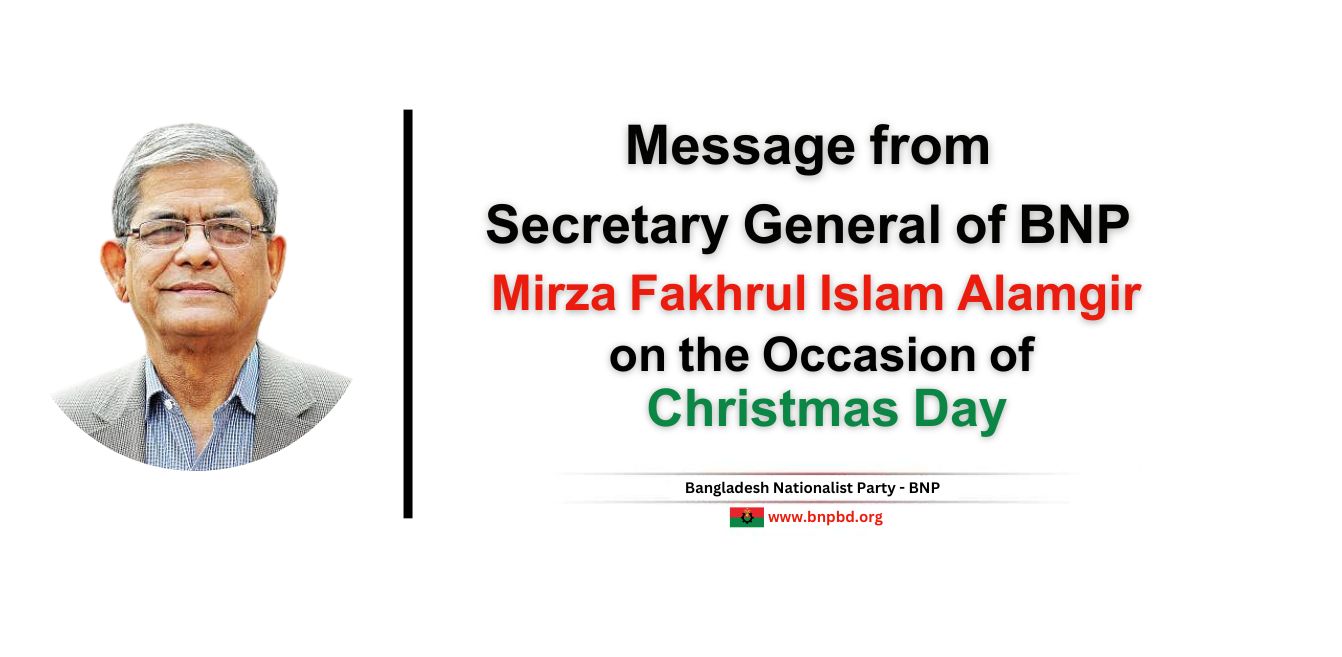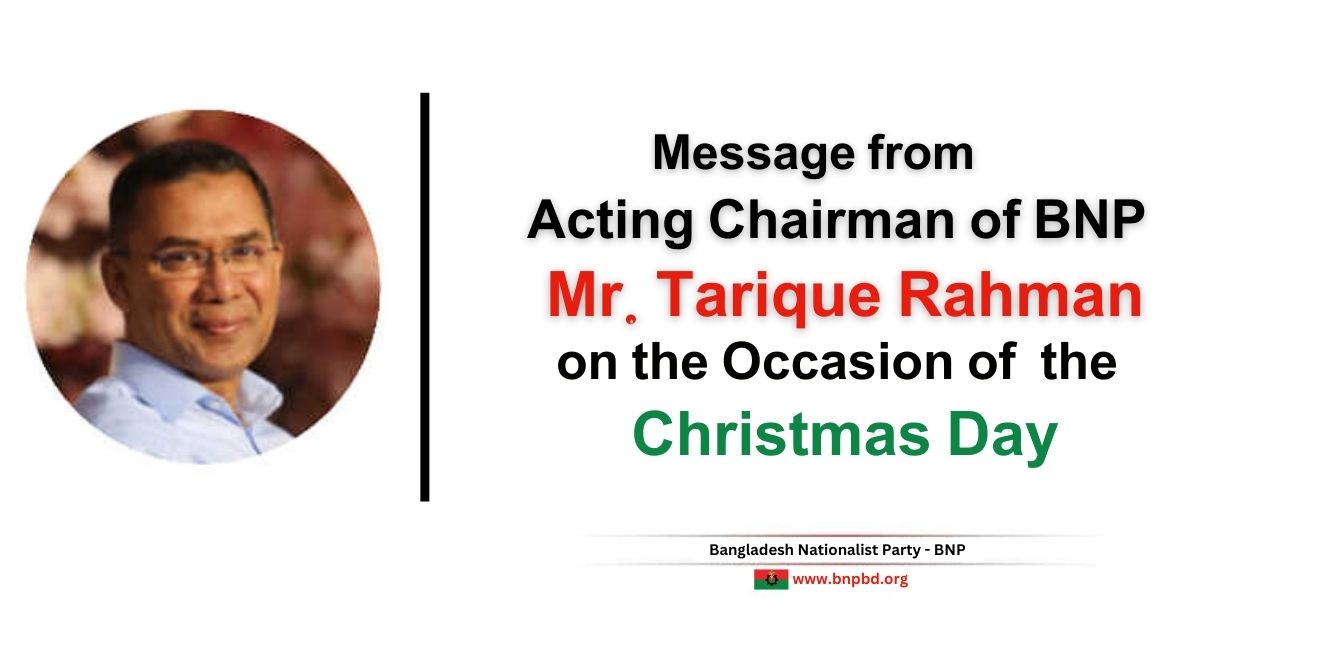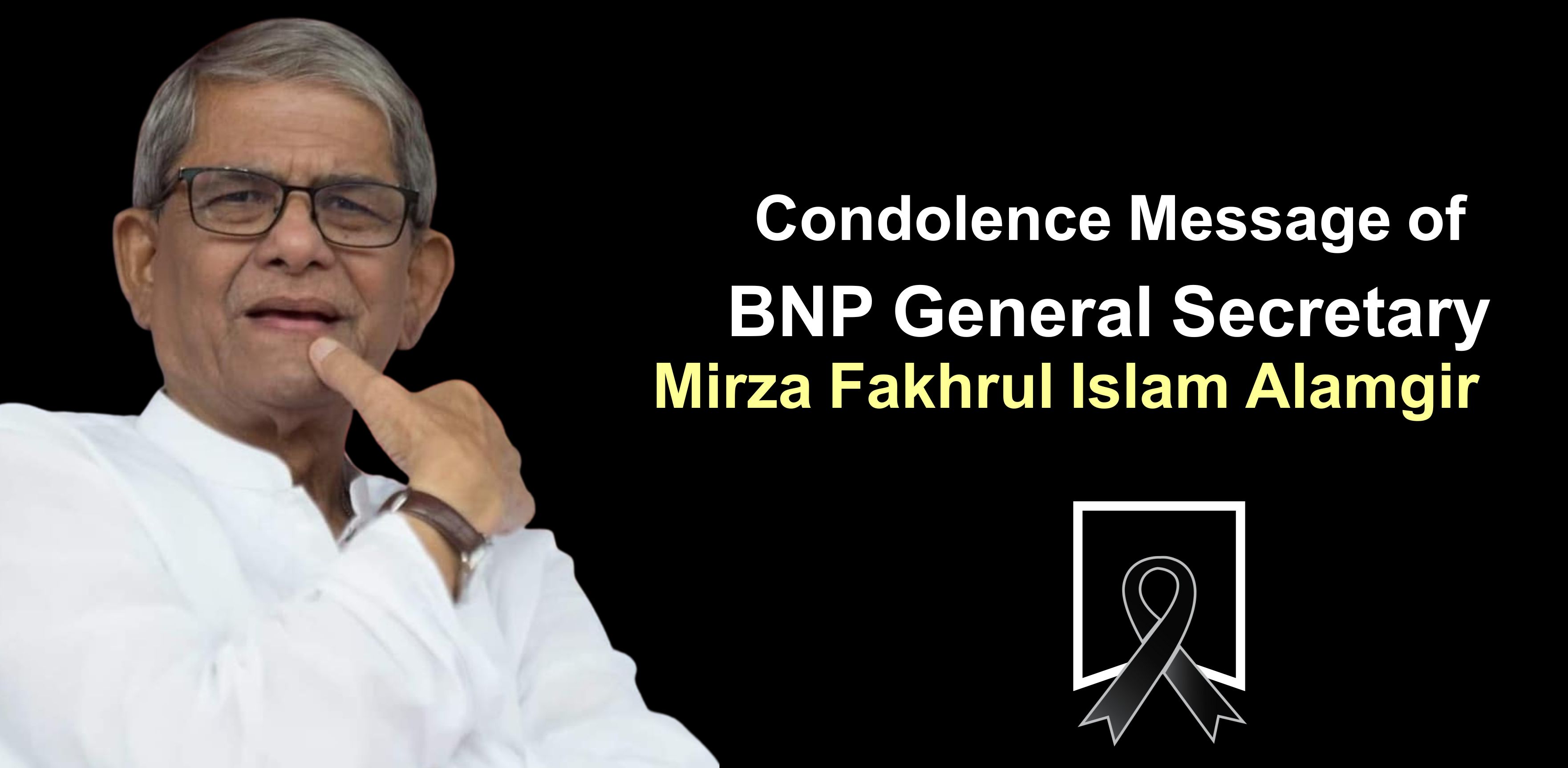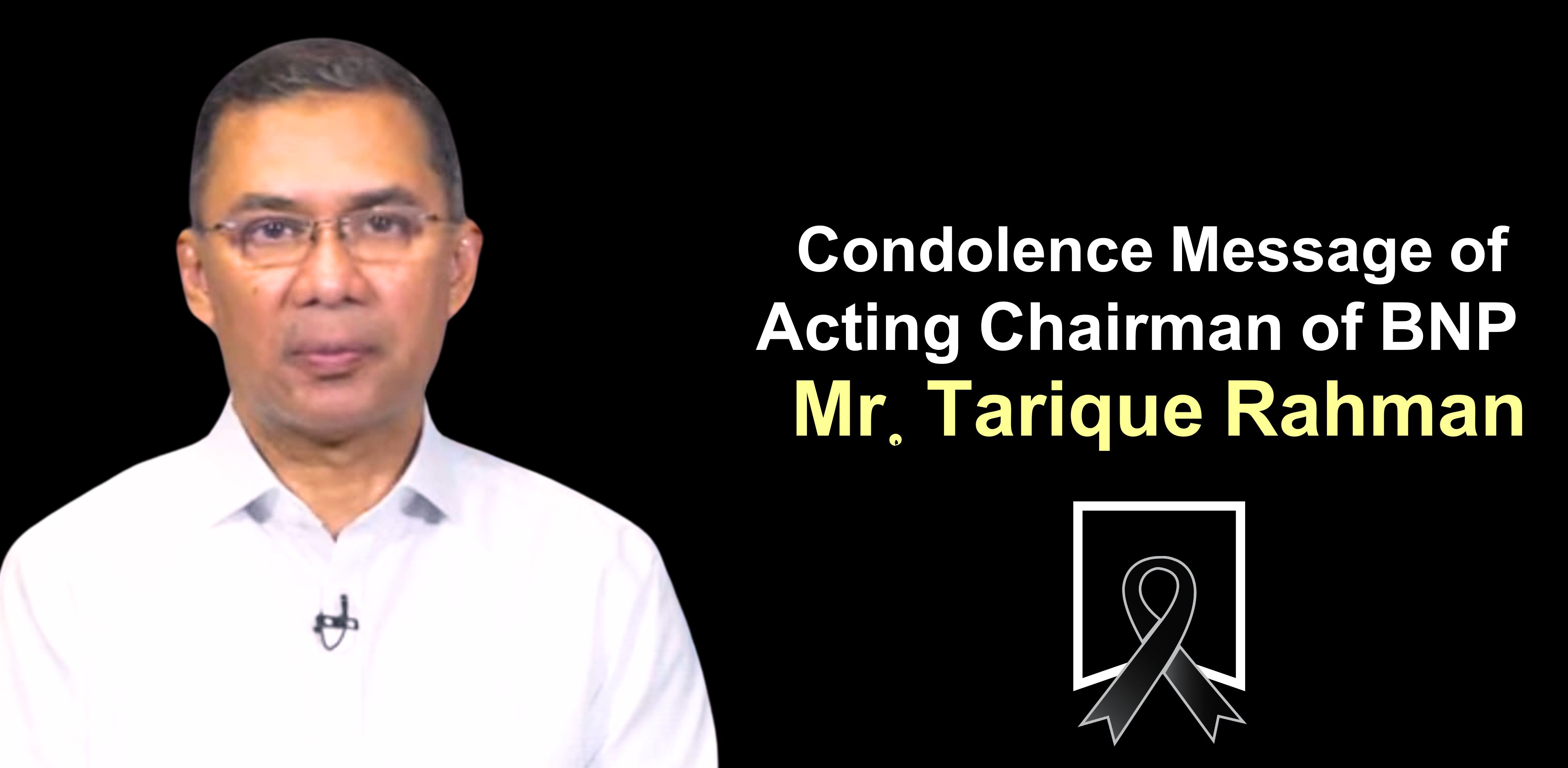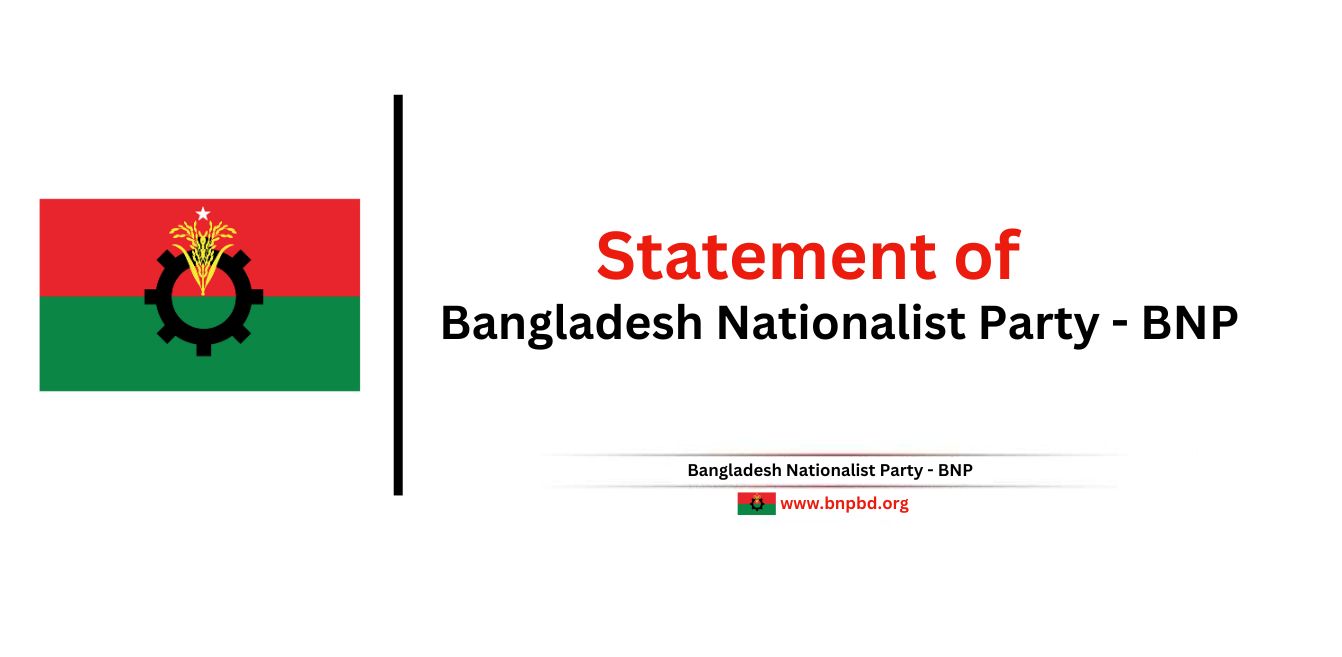
02 February 2024
Statement of Bangladesh Nationalist Party - BNP
It has come to our attention that the Ambassador of Russia in Bangladesh, Alexander Mantytskiy, has termed the Bangladesh Nationalist Party-BNP’s statement regarding Russia’s involvement in the 12th national elections as “misleading and false.” He also claimed that the people of Bangladesh elected the government in the elections, and 41.8% of the people voted, most of whom voted for the ruling Awami League (AL).
The Russian Ambassador’s unwelcome, undesirable, and pro-AL statement has hurt the democratic sentiments of the people of Bangladesh. Today, all Bangladeshi citizens except political affiliation or allegiance with the AL, have lost their rights and freedoms, and find themselves subjugated in their own nation. For the past 15 years, individuals from every class and profession of the society have endured state-sponsored discrimination, injustice, and humiliation, due to the corruption, misrule and repression propagated by an anti-people regime that forcefully clings to power.
In the backdrop of the farcical elections in 2014 and 2018, observing predetermined results in every constituency, the elections in 2024 were staged by Sheikh Hasina with the same authoritarian spirit. The so-called “dummy elections” were characterized by the participation of dummy political parties, with ballot stuffing from dummy voters, and endorsement from dummy observers. The sham elections were never meant to reflect the democratic aspirations of the 120 million Bangladeshi voters. Instead, they were launched as a component of a broader plan, aimed at extending the illegal, illegitimate, and unconstitutional rule of the fascist Hasina regime.
With a genuine voter turnout of less than 5%, the politicized sections of the state apparatus inflated figures while numbers did not match up. The Election Commission furnished rounds of fabricated claims about the number of votes being cast, contradicting news, information, photos, videos, and eyewitness accounts from polling stations across Bangladesh.
Despite election engineering at the polling booths and centers, as well as exaggerated figures at the constituency level, the Election Commission’s official dashboard showed only 28% casting in the penultimate hour of vote closing, inexplicably increasing to 41.8% in the final tally. In many voting centers, including in Hasina’s own constituency, 100% of the votes were shown as cast, driven by fake voters including children, fake queues, rampant ballot stuffing, systematic vote rigging, and misrepresentation of vote counts.
As the United Nations Human Rights Chief noted after the elections, the future of all Bangladeshis is at stake. Mass arrests, threats, enforced disappearances, blackmailing and surveillance were all methods reportedly used by law enforcement officials prior to the ballot. Around 25,000 opposition supporters were arrested in two months, including key opposition leaders. The aligned stance of the United Nations with other democratic stakeholders, advocating for free, fair, participatory, and peaceful elections, continues to resonate with the aspirations of the people of Bangladesh.
Such shared call of the democratic world, including the European Union, to ensure timely and full investigations of all reported irregularities, is widely appreciated in Bangladesh. The United States shared the view with other observers that the elections were not free or fair, and regretted that not all parties participated. The United Kingdom stressed that democratic elections depend on credible, open, and fair competition, but these standards were not met during the election period.
Similarly, Canada expressed its disappointment that the electoral process fell short of the principles of democracy and freedom and called on the relevant authorities to work transparently to move forward towards democracy, respect of human rights and fundamental freedoms. Australia contended that it is regrettable how the elections took place in an environment where not all stakeholders could participate meaningfully and substantially and expressed concerns about the violence and the arrests of political opposition members.
In a joint statement, seven esteemed civil society organizations voiced their deep concern regarding the elections for being neither genuine nor competitive, and raised serious questions about the adherence to democratic principles and international standards. They called upon the Government of Bangladesh to take steps to hold free, fair, participatory, and inclusive fresh elections, with political consensus from all parties, under impartial election management body and under a neutral interim government administration.
In a similar manner, with substantiated evidence, numerous reports, and documentation point to widespread irregularities in the lead-up to and on election-day, including voter suppression and manipulation of results, which severely undermine the fundamental principles of democracy. The rights to freedom of association, peaceful assembly, and expression were selectively guaranteed to pro-government entities and individuals. Regrettably, these fundamental rights were systematically and consistently restricted for opposition figures and dissenting voices.
However, in stark contrast to the views of democratic countries and reputable organizations that criticized the manipulated elections and urged investigations, Russia, providing a semblance of false legitimacy, immediately extended congratulations to Sheikh Hasina. The misleading assertion that the people of Bangladesh voted for the AL, sparks apprehension as to how a regime with documented history of human rights violations, can uphold the core values of civic rights and fundamental freedoms.
In essence, the aspirations of the people of Bangladesh and the democratic world are the same with a common goal. That common goal is to restore democracy, good governance, human rights, and prosperity in Bangladesh, through an elected and accountable government, which will focus on policies and politics to serve the nation’s genuine interests. Towards that goal, Bangladesh deserves an electoral process that is transparent, accountable, and representative of collective will, and one that is respected and trusted by all parties.
Since the one-sided elections on January 7 were not free, fair, and impartial, holding fresh and meaningful elections has emerged as the popular, unifying demand for the people of Bangladesh. The BNP, as the main opposition having a public mandate to bring about the much-anticipated change, has been campaigning for the restoration of the people’s voting rights, through the ongoing peaceful and non-violence movement, engaging all pro-democracy political parties and forces.
It is the expectation of the free-spirited citizens of Bangladesh that Russia, India, China, or any other country, will not lend undue support to the fascist Hasina regime. Instead, they hope these governments will stand by all Bangladeshis, rather than just the publicly alienated ruling affiliates, to safeguard their rights and freedoms.
Bangladesh and Russia have longstanding friendly relations based on business, trade, knowledge and other bilateral interests, and the BNP, as the people’s party, is committed to expand the horizon. The BNP believes that achieving sustainable diplomatic success involves fostering friendship and building bridges between the people of both nations. Therefore, the BNP urges Russia to accord due respect to the democratic values, spirit of freedom, and substantial sacrifices of the Bangladeshi people.
Foreign Relations Committee
Bangladesh Nationalist Party-BNP

.png)
